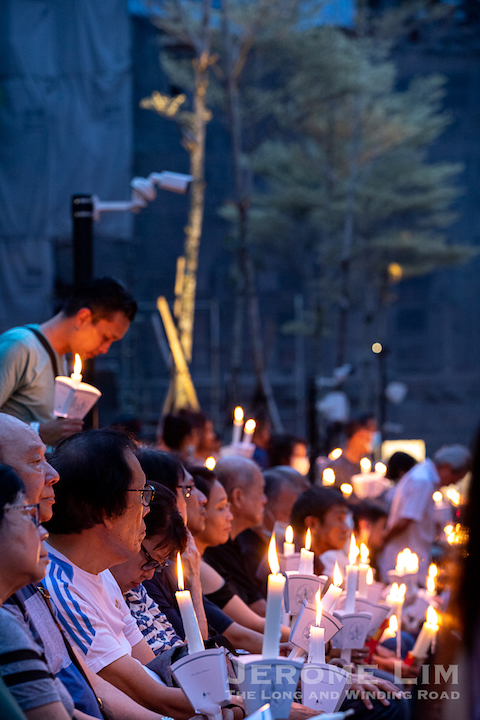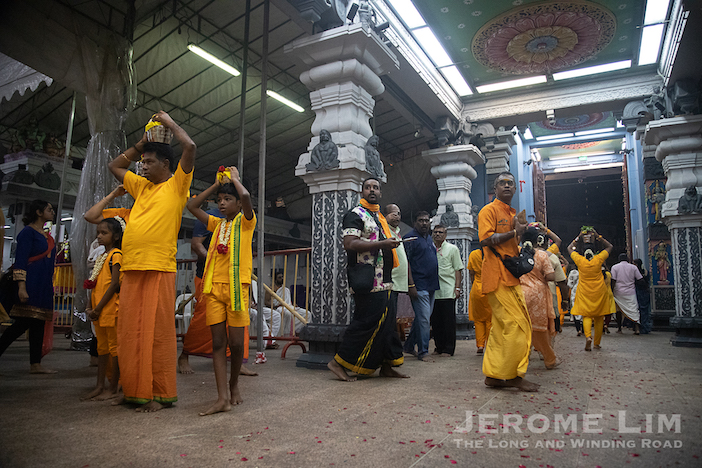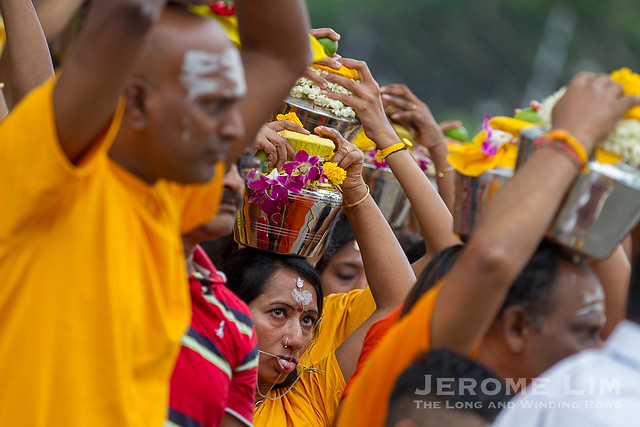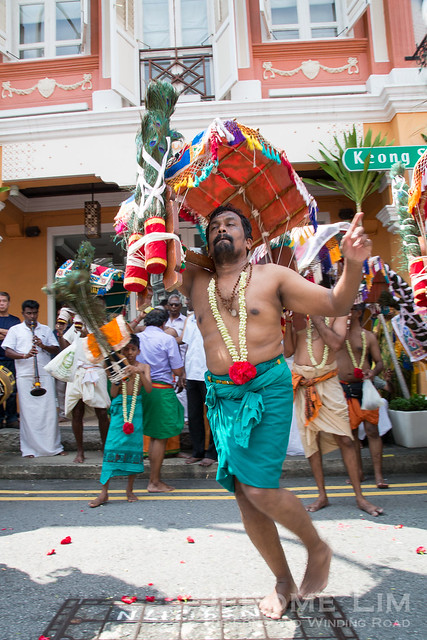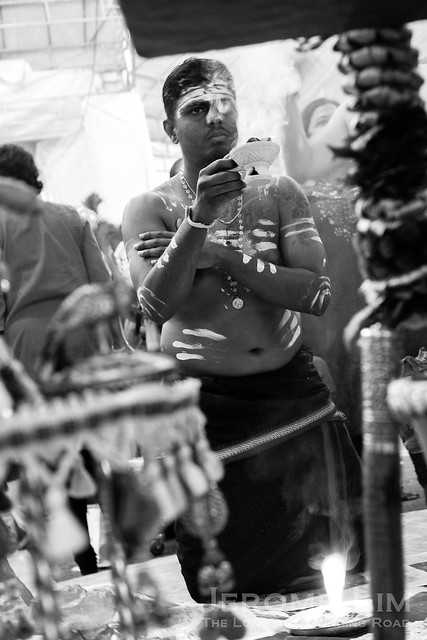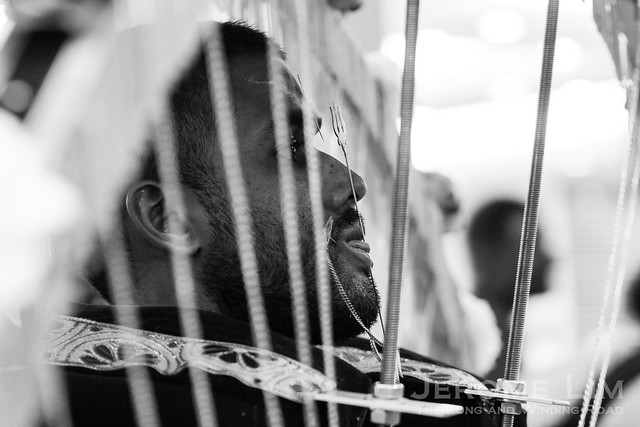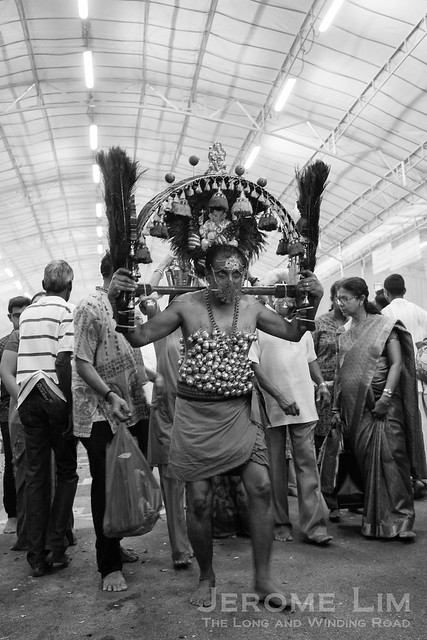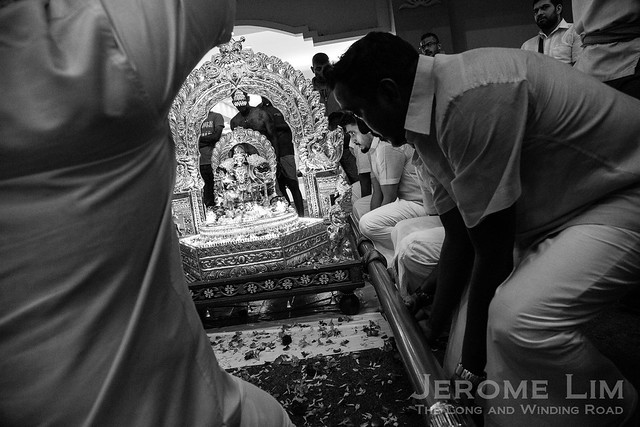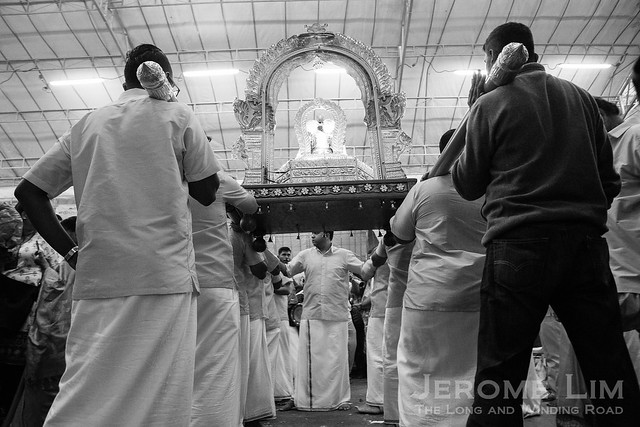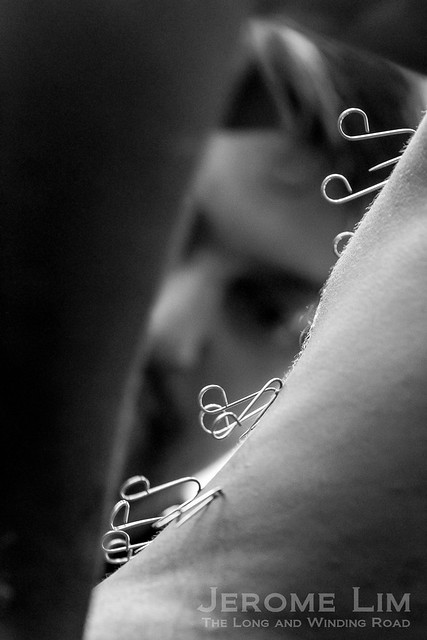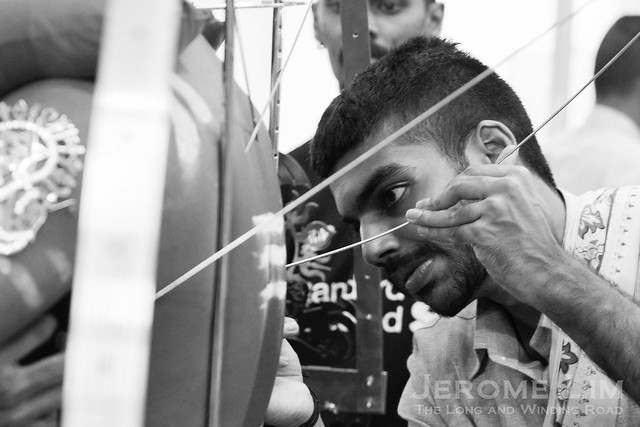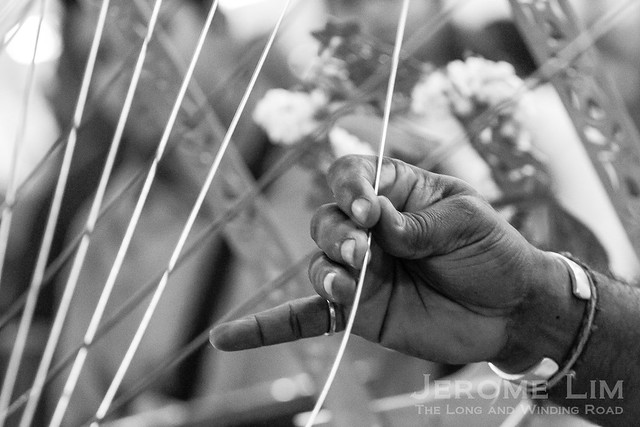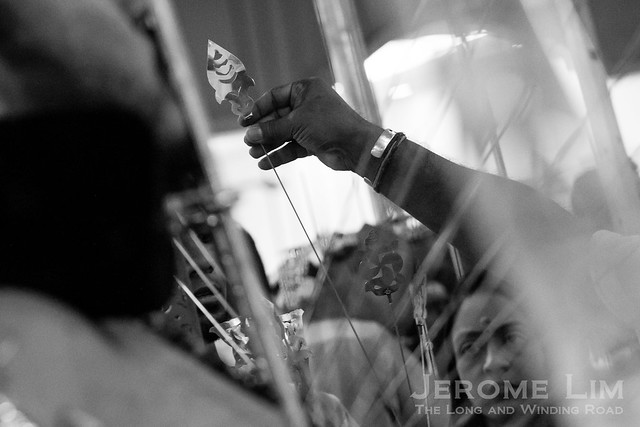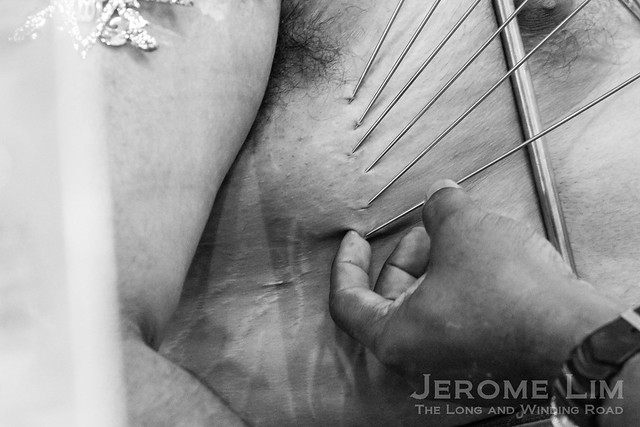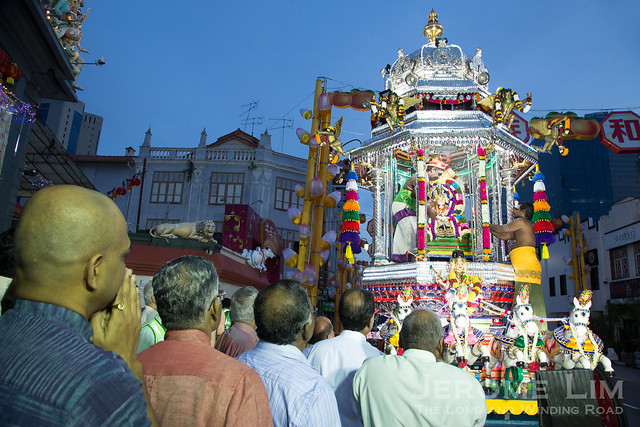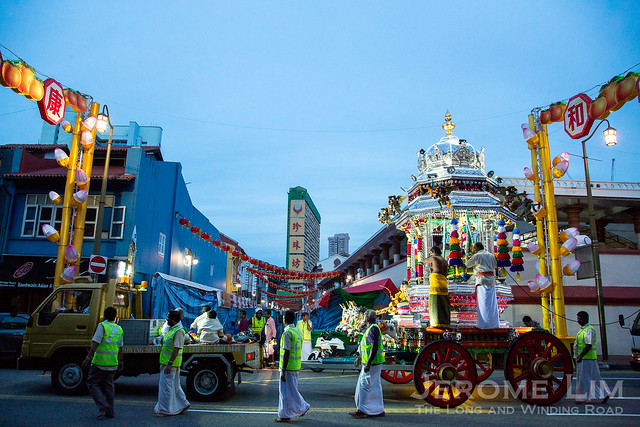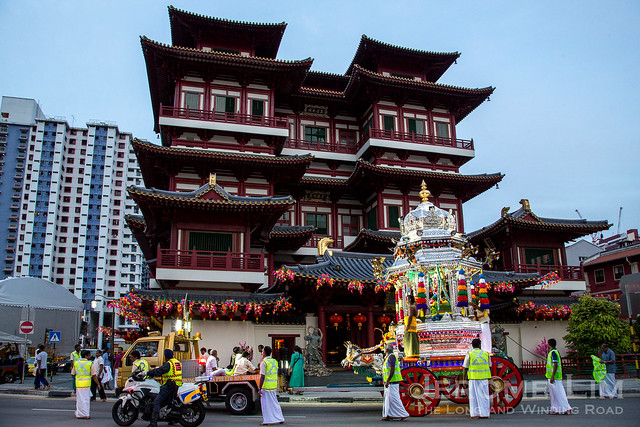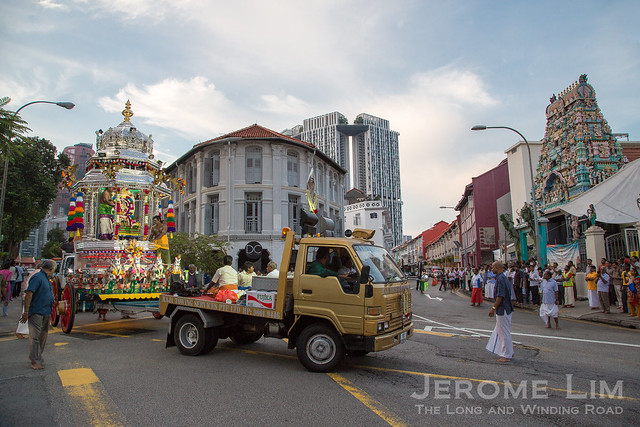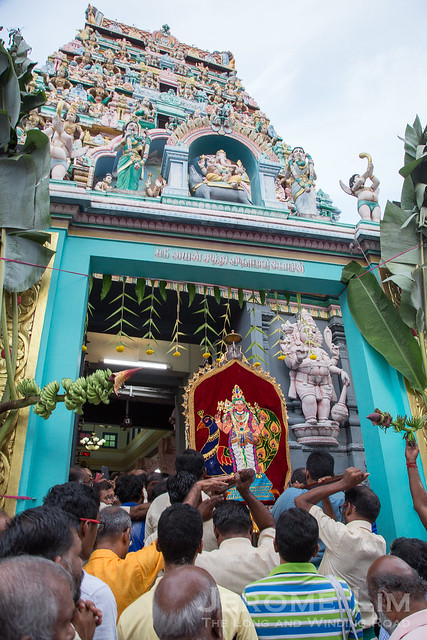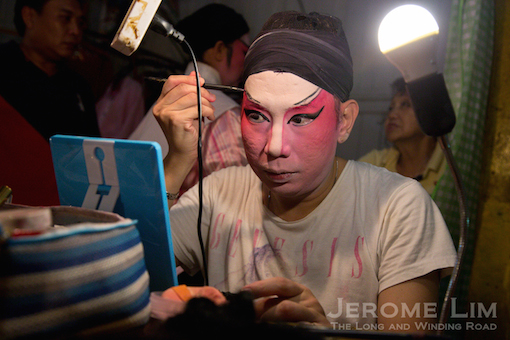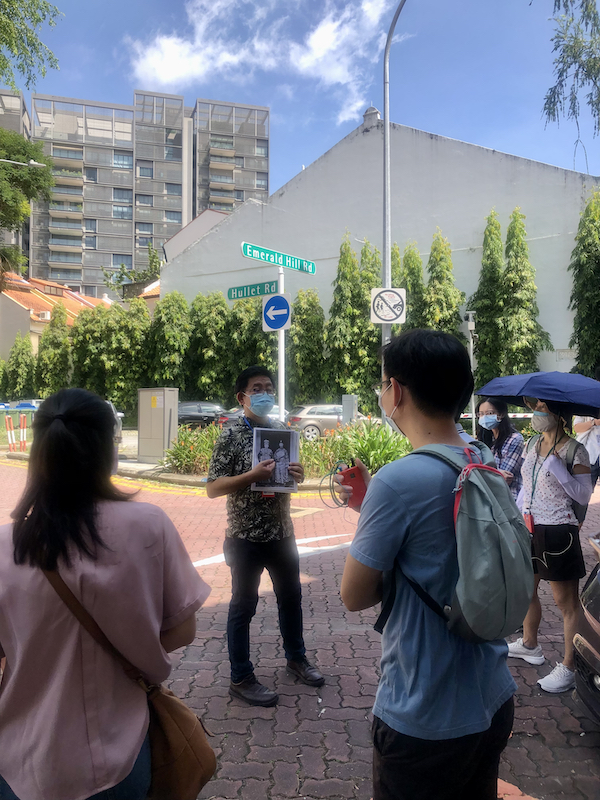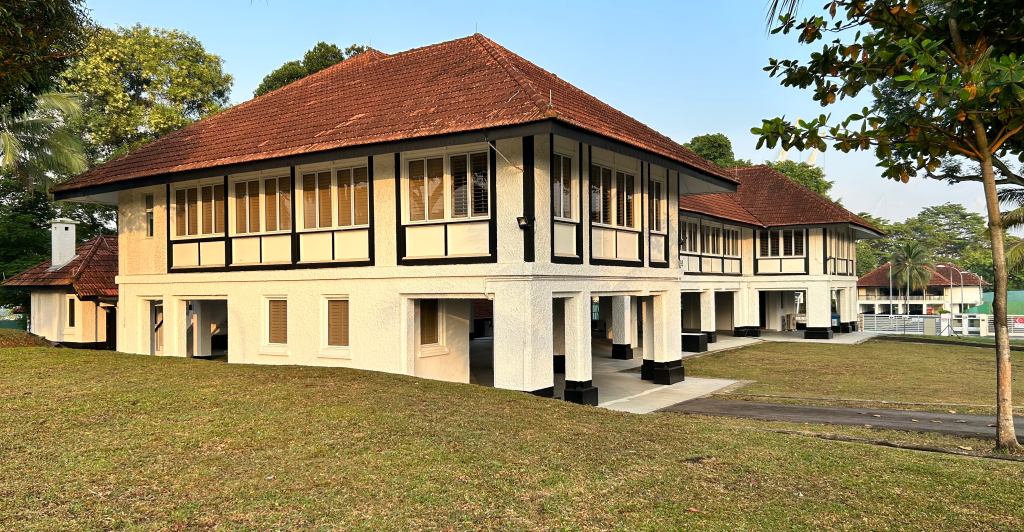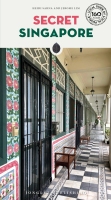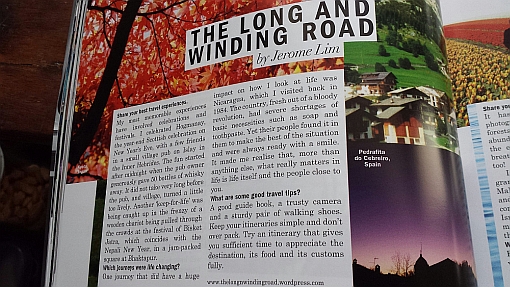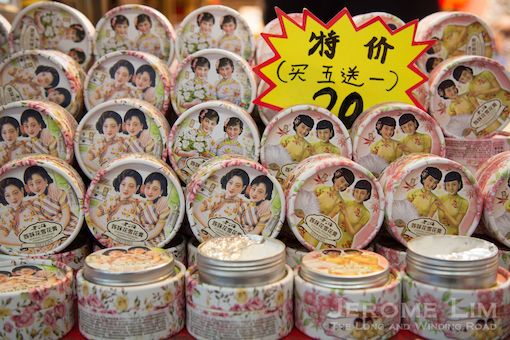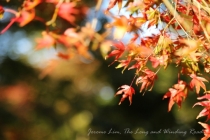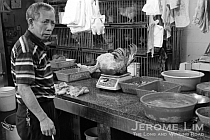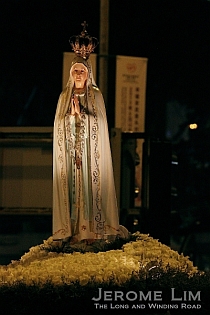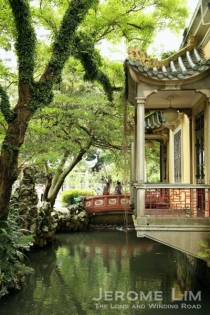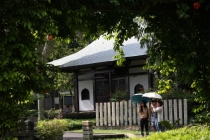The southern isles of Singapore are steeped in myths, legends and traditions. While most seem to lie buried in the sands that have expanded them, one that lives on is the pilgrimage to Pulau Tembakul – Kusu Island – that some accounts have as going back over two centuries to 1813.

Kusu during a pilgrimage season of the past – crossing the causeway at low tide. (photo: National Museum of Singapore on Facebook).
The annual event draws a steady stream of Taoist devotees. Although the numbers may have fallen from the highs of the 1960s and 1970s, thousands still make the short passage by sea every ninth month of the Chinese lunar calendar (which began on 9 October this year) to seek favour and blessings at the island’s holy sites. The sites are a temple dedicated to the popular Taoist deity Tua Pek Kong, and three keramat-keramat, which in this case are the supposed graves of (Muslim) holy persons who are venerated. This practice has its roots in Sufism and is discouraged by mainstream Islam and has over the years found a following amongst the Chinese.

A devotee making her way to Kusu in 1971 (source: The Aged In Singapore: Veneration Collides With The 20th Century, Nada Skerly Arnold, 1971).

Two of the island’s three keramat-keramat (found at the top of 152 steps).
Perhaps the most popular of the island’s legends is one tied very much to the name Kusu. The island, which in its pre-reclamation days actually resembled a tortoise at high tide; its head, the outcrop on which the temple was built, and its body, the mound to which the head was linked by a natural causeway at low tide at the top of which the keramat-keramat are found. This legend, which also provides a basis for the pilgrimage, has it that a tortoise (or more correctly a turtle) had rescued two fishermen from drowning by turning itself into the island. There are several more legends that provide an explanation for the origins of the pilgrimage, the keramat-keramat and the personalities that they are associated with – all of which are unverified (see: Kusu Island – on Infopedia).
Another perspective of the island: The tortoise in the early light of day

An old postcard showing Kusu Island before reclamation.

The Tua Pek Kong temple on the ‘head’ of the tortoise (source: The Aged In Singapore: Veneration Collides With The 20th Century, Nada Skerly Arnold, 1971).

The head of the tortoise (photo: Steffen Röhner on Panoramio).

The pilgrimage season in photographs

Arriving pilgrims.

At the Tua Pek Kong Temple.

At the Tua Pek Kong Temple.

Ascending the steps to the keramats.

A deviotee.

A keramat.

At a keramat.

A keramat.

Obtaining blessings.

The Tua Pek Kong Temple.

The Tua Pek Kong Temple.

The Tua Pek Kong Temple.

The Tua Pek Kong Temple.

The keramats.

The Tua Pek Kong Temple.
More on the pilgrimage in modern times: Keeping alive Kusu Island pilgrimage (The Straits Times, 9 Nov 2017).















